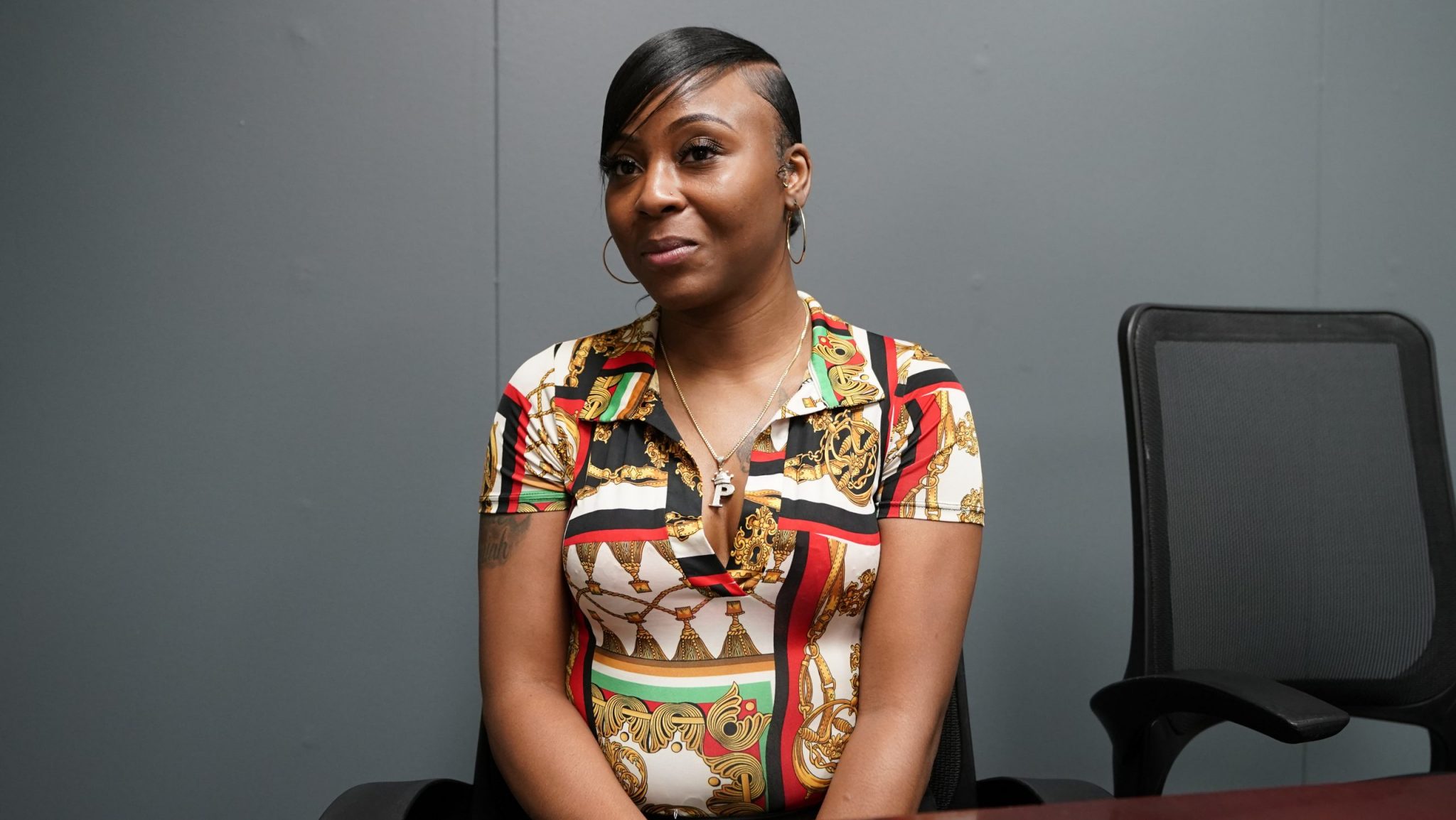Detroit Today: How facial recognition software in criminal investigations can harm communities of color
Porscha Woodruff is the third Black Detroiter to be wrongfully arrested due to DPD using facial recognition technology.

Detroit resident Porcha Woodruff is among the three individuals who sued the Detroit Police Department after being falsely arrested because of facial recognition software.
This week, 32-year-old Porscha Woodruff is suing the Detroit Police Department after being falsely arrested because of facial recognition software.
Subscribe to Detroit Today on Apple Podcasts, Spotify, Google Podcasts, NPR.org or wherever you get your podcasts.
The lawsuit states that Woodruff suffered pain, humiliation, emotional distress and economic damages, among other things, from the arrest while she was getting her children ready for school.
Woodruff is the third Black Detroiter to be wrongfully arrested due to DPD using facial recognition technology. The software was adopted by the department in 2019 after months of heated debate.
In a statement, DPD Chief James White said that he found the lawsuit “very concerning” and is taking the matter “very seriously.”
With so many concerns surrounding the technology, should it be used as a tool for law enforcement and criminal investigations?
Guests
Tawana Petty leads the Detroit digital justice coalition. She is a data rights organizer on the impact surveillance has on Detroiters. Petty says surveillance should not be conflated with safety.
“I’ve been struggling against this conflation of surveillance and safety for many years now,” says Petty.
Phil Mayor is a senior staff attorney with the American Civil Liberties Union of Michigan. He is also the lead litigator on the Robert Williams case, a man who sued the Detroit Police Department for being wrongfully arrested and jailed based on faulty facial recognition technology. Mayor believes police use of the technology inherently leads to poor results.
“It’s a shoddy technology and it creates shoddy investigations,” says Mayor. “Because detectives do what we all in some ways do when a computer tells us something — which is that they learned to trust it and they learned to lean on it.”
Derek Riley is a professor and program director in electrical engineering and computer science at the Milwaukee School of Engineering. He is an expert in machine learning, deep learning, artificial intelligence, simulation and high-performance computing. Riley explains how biases get embedded in AI systems.
“Everything in these AI systems has to take real world information and convert it into digital information,” says Riley.
Rep. Rashida Tlaib is a Democrat from Detroit representing Michigan’s 12th Congressional District. She is a co-sponsor of House bill H.R.3907, which imposes limits on facial recognition software and AI systems in government. She believes there is support across the aisle to limit law enforcement’s use of this technology.
“I think there are some colleagues that are very concerned — very concerned about privacy and civil liberties issues,” says Tlaib. “[We] may not agree on everything, but I think they know that this can go too far.”
Trusted, accurate, up-to-date.
WDET strives to make our journalism accessible to everyone. As a public media institution, we maintain our journalistic integrity through independent support from readers like you. If you value WDET as your source of news, music and conversation, please make a gift today.

